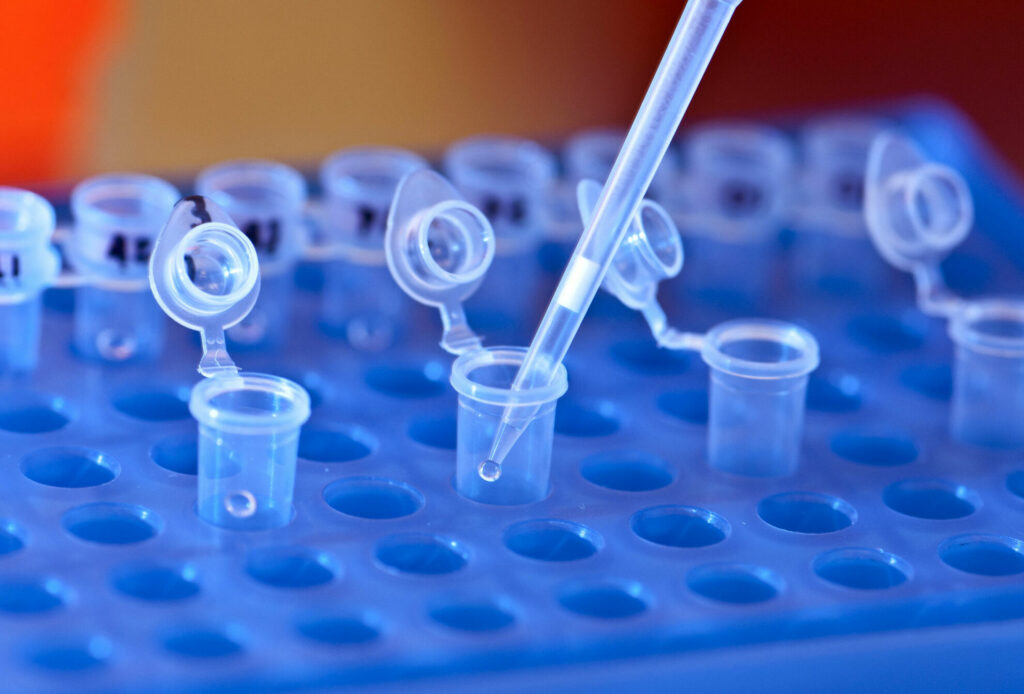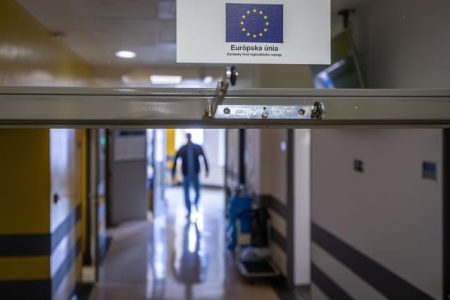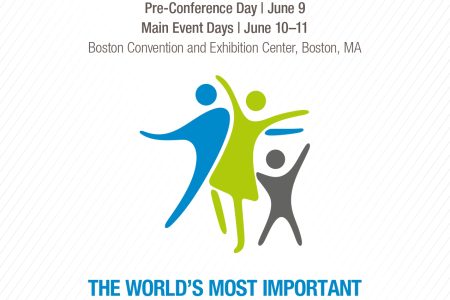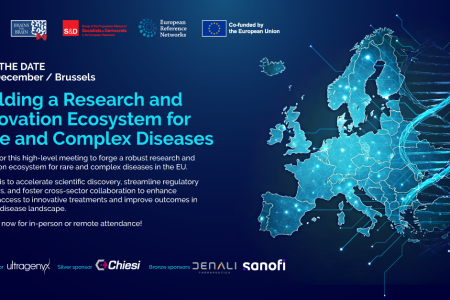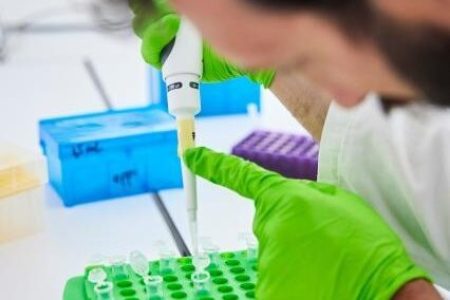A conference entitled “Towards an EU Action Plan on Rare Diseases” will be held on 10 April 2025 at the Medical University of Warsaw, Poland, under the auspices of the Polish Presidency of the EU Council. Organised by the Polish Ministry of Health, the European Economic and Social Committee (EESC), and the Medical University of Warsaw, the event will mark an important step in shaping future European policy on rare diseases.
This high-level meeting will bring together policymakers, researchers, clinicians, and patient representatives to discuss key priorities for a European action plan. With national strategies evolving, the focus now shifts to reinforcing coordination at EU level. On this first day of the conference, topics will include improving diagnosis, expanding access to therapies, integrating national systems into European Reference Networks (ERNs), and advancing data use and innovation.
Registration is open here until 3 April. During the event, interpretation will be available in Polish, English, and French.
Bridging research and care: ERDERA co-organises dedicated side event
On 11 April, a follow-up side event titled “Bridging Research and Care for Patients” will bring together scientists, clinicians and patient advocates to deepen the discussions. Jointly organised by the European Rare Diseases Research Alliance (ERDERA), EURORDIS – Rare Diseases Europe, Poland’s Medical Research Agency (ABM), and the National Forum Orphan, the event will address how to better connect research outcomes with real-world patient care.
The side event will highlight ERDERA’s growing role in collaborative research and innovation. Daria Julkowska, ERDERA’s Coordinator, will co-chair sessions exploring advances in diagnostics, newborn screening, therapies, clinical trials, translational medicine, and data systems.
Across both days, the event aims to prioritise rare diseases in the EU agenda—looking at integrated care approaches and the creation of national mirror groups to support local communities and align national efforts with broader European strategies.
For more information, see the programmes for day 1 and day 2, and for additional details and registration, please visit the event website. Registration will close on 3 April 2025.
Photo by SNE via Flickr CC BY 2.0
Event Agenda
10 April, “Towards an EU Action Plan on Rare Diseases”
Address: 2A Księcia Trojdena Street, 02-109 Warsaw. Please note that the following day the event is in a different venue.
08:00 | REGISTRATION
09:00-09:30 | OPENING SESSION
Welcome: Rafał KRENKE, Rector, Medical University of Warsaw, Poland
-
Izabela LESZCZYNA, Health Minister, Poland
-
Baiba MILTOVIČA, President of the Section for Transport, Energy, Infrastructure and the Information Society, EESC
-
Olivér VÁRHELYI, European Commissioner for Health and Animal Welfare (video message)
-
Adam JARUBAS, Chair of the European Parliament Committee on Public Health
09:30-10:45 | SESSION 1 – Towards an EU action plan on rare diseases: national plans and European cooperation – state of play and future actions
Moderator: Enrique TEROL, Health Counsellor, Permanent Representation of Spain to the EU
- Urszula DEMKOW, Undersecretary of State, Ministry of Health, Poland: “Poland’s national strategy on rare diseases”
- Anne-Sophie LAPOINTE, Project Manager of Rare diseases mission, Ministry of Labour, Health, Solidarity and Families, France: “Main outcomes and lesson learned from the French national strategy on rare diseases”
- Donata MERONI, Head of Unit, Health monitoring and cooperation, Health network, DG SANTE, EC: “The EU action for rare diseases”Debate
10:45-11:15 | COFFEE BREAK
11:15-12:30 | SESSION 2 – Organisation and management of healthcare systems for patients with rare diseases
Keynote Speech: Krystyna SZYMAŃSKA, Professor at the Medical University of Warsaw, Poland – showcase rare disease patient
Moderator: Josep FIGUERAS, Director Emeritus of the European Observatory on Health systems and policies
- Luca SANGIORGI, ERN BOND Coordinator, Coordinator of the ERNs Coordinators Group: “ERNs 8 years’ experience on integration into the national healthcare systems: barriers and enablers”
- Eileen TREACY, Clinical Professor of Medicine of Rare Disorders, Trinity College Dublin, Ireland: “Development of efficient patient pathways and referral system: the EU dimension: JARDIN (The Joint Action on Integration of ERNs into National Healthcare Systems)”
- Juan Fernando MUÑOZ, Secretary General of Digital Health and Innovation, Ministry of Health, Spain: “UNICAS: A network of coordinated care and expert knowledge to support children with rare diseases and their families”
- Lori RENNA LINTON, EuroHSP: “The rare diseases patient journey experience”Debate
12:30-13:30 | SESSION 3 – Access to treatments: key issues and new approaches
Moderator: Alexis ARZIMANOGLOU, Professor, Coordinator of the European Reference Network for Rare and Complex Epilepsies, ERN EpiCARE
- Kaja KANTORSKA, Policy Officer, Unit of Medicines: Policy, Authorisation and Monitoring, DG SANTE, EC: “Regulatory options and pull and push incentives”
- Daria JULKOWSKA, ERDERA scientific coordinator, INSERM, France: “The example of the European partnership ERDERA to boost clinical research and innovation”
- Eulàlia OLESTI, Regulatory Affairs Lead, Hospital Clínic Barcelona, Spain: “Academic CAR-T Clinical Development: The Case of ARI-0001”
- Katarzyna PIOTROWSKA-RADZIEWICZ, Director, Department of Drug Policy and Pharmacy, Ministry of Health, Poland: “Orphan drugs in Poland – access, new developments, key issues”Debate
13:30-15:00 | LUNCH
15:00-15:30 | SESSION 4 – Solidarity and cooperation on rare diseases with Ukraine
Moderator: Urszula DEMKOW, Undersecretary of State, Ministry of Health, Poland
- Tacjana WILCZYŃSKA, Head of Clinic of Children Palliative Care, Consultant for Mobile Palliative Care Unit, Kyiv City Children Diagnostic Centre, Ukraine
- Tatiana MAKAREVICH, Public Health Specialist, Representative of WHO in Poland: the initiatives and outcomes of Poland’s support to Ukraine
- Ruth LADENSTEIN, ERN PaedCan, Vice-Chair of the ERNs Coordinators GroupDebate
15:30-16:15 | SESSION 5 – Towards reducing the time for an early and accurate diagnosis for patients with rare diseases
Moderator: Virginie BROS-FACER, CEO, EURORDIS
- Maurizio SCARPA, Coordinator of MetabERN: “Promises and challenges of genomic new-born screening”
- Felipe GÓMEZ MARTÍN, Ministry of Health, Spain: “Screening, Genetic Tests and Reference Centres for Patients with Rare Diseases in the Spanish National Health”
- Bruno RODRIGUES, Ministry of Research and Higher Education, Luxembourg “The European “1+ million genomes” initiative” (online)Debate
16:15-17:15 | SESSION 6 – Patient data as a fundamental element in addressing the needs of patients with rare diseases
Moderator: Hélène LE BORGNE, Policy Officer, Unit of Health Innovations & Ecosystems, DG RTD, EC
- Tomislav SOKOL, Member of the European Parliament, Rapporteur on the e-Health Data Space Regulation: “Expected benefits for patients with rare diseases” (online)
- Holm GRAEßNER, Coordinator of ERN-RND and JARDIN WP7 leader: “Patient registries and data sharing in the ERN environment”
- Joni KOMULAINEN, Senior Ministerial Adviser, Ministry of Social Affairs and Health, Finland: “Implementation of the regulation at the national level in the case of rare diseases: Is there a need for a particular approach?”
- Szymon BIELECKI, Head of Sector – Research and Innovation, Unit of eHealth, Well-Being and Ageing, DG CNECT, EC: “AI Innovation and Policy Coordination”Debate
17:15-17:30 | CLOSING SESSION
- Urszula DEMKOW, Undersecretary of State, Ministry of Health, Poland
- Ágnes CSER, Rapporteur of the EESC exploratory opinion: „Leaving No One Behind: European Commitment to Tackling Rare Diseases”
11 April, “Bridging Research and Care for Patients”
Please note that this event is in a different venue as the previous day.
Address: 63 A Żwirki i Wigury Street, 02-091 Warsaw
08:00 | REGISTRATION & WELCOME COFFEE
08:30-09:15 | OPENING REMARKS
- Prof. Krzysztof Szczałuba, Director of the Center of Excellence for Rare and Undiagnosed Diseases, Medical University of Warsaw, Poland
- Prof. Urszula Demkow, Secretary of State, Ministry of Health, Poland
- Ms. Małgorzata Bogusz, member of the European Economic & Social Committee (EESC), Poland
- Mr. Stanislaw Maćkowiak, President of National Forum ORPHAN, Poland
- Dr. Virginie Bros-Facer, CEO of EURORDIS
- Dr. Daria Julkowska, coordinator of ERDERA, INSERM, France
Conference Chair: Ms. Marzena Nelken, National Forum Orphan
09:15-10:45 | SESSION 1 – Advancing Diagnostics for Rare Diseases
Chair: Prof. Holm Graessner
- Newborn screening initiatives & future directions – the Polish example of diagnosis and treatment of Spinal Muscular Atrophy (SMA) , Prof. Anna Kostera-Pruszczyk, Head of the Department of Neurology, Medical University of Warsaw, Poland, ERN EURO-NMD
- Advancements in NBS – Screen4Care – Prof. Alessandra Ferlini, director of the Medical Genetics section at the University of Ferrara & Screen4Care coordinator, Italy
- Innovation in diagnostics – beyond genetic testing and towards clinical decision support tools – Prof. Holm Graessner, Director of the Rare Disease Centre Tübingen, University of Tübingen, Germany
- From diagnosis to innovative craniofacial surgeries – Prof. Dawid Larysz, Head of the Clinic of Head and Neck Surgery for Children and Adolescents at the Provincial Specialist Children’s Hospital in Olsztyn, Poland
- Challenges and opportunities in diagnostics from the perspective of patients – Mr.Wojciech Nadolski , Association of Families with Fabry Disease Poland
- Q&A
10:45-11:00 | COFFEE BREAK & NETWORKING
11:00-11:50 | SESSION 2 – Innovative Therapies and Clinical Trials – Key projects supported by Medical Research Agency (MRA)
Chair: Prof. Wojeciech Fendler
- MRA’s actions for Rare Diseases- success stories and future prospects, Prof. Wojciech Fendler, President of the Medical Research Agency (MRA), Poland
- Clinical Trials as a key component of effective treatment in children with rare diseases based on MRA’s projects experienced, Prof. dr hab. n. med. Anna Raciborska, Head of the Department of Oncology and Oncological Surgery for Children and Adolescents, Institute of Mother and Child, Poland
- MRA grants in orphan diseases in children: lessons from TSC, Prof. dr hab. n. med. Katarzyna Kotulska-Jóźwiak; Head of the Department of Neurology and Epileptology, The Children’s Memorial Health Institute, Poland
- Q&A
11:50-12:20 | Unveiling ceremony of the MURAL FOR RARE DISEASES (outdoor – the wall of the neighboring building; Address: ul. Żwirki i Wigury 81)
12:20-13:15 | networking & lunch break
13:15-15:00 | SESSION 3 – Strengthening National & European Collaboration in translational research
Chair: Prof. Luis Pereira de Almeida
- Opening by Ms. Hélène Le Borgne, Policy Officer, DG RTD, European Commission
- Translational medicine platforms: a way to strengthen national & European ecosystem, Prof. Luis Pereira de Almeida, President of the Centre for Innovative Biomedicine and Biotechnology, University of Coimbra, Portugal
- RareBridge – Translational Research Platform for Rare Diseases, Prof. Małgorzata Dawidowska, Deputy Director for Research at IHG PAS, Poland
- EATRIS – European Infrastructure for Translational Medicine, Mr. Anton Ussi, Operations & Finance Director of EATRIS, The Netherlands
- Łukasiewicz – PORT – Advancing translational research via P4 medicine approaches, Dr hab. Witold Konopka, Head of Neuroplasticity and Metabolism Research Group, PORT, Poland
- Patient organisation as driver for translational research, Ms. Małgorzata & Mr. Piotr Kośla, PACS2 Research Foundation, Poland
- Q&A
15:00-16:00 | Discussion Panel: RD research: From national registries to European Health Data Space and back
Chair: Mr. Tomasz Grybek
- How to build FAIR registries, Dr. Bruna Dos Santos Vieira, Data Steward, Center for Molecular and Biomolecuar Informatics, Radboud UMC, The Netherlands
- How to build quality data sets in the clinical environment, Prof. Mar Manu Pereira, Head of research Lab in rare anemia disorders, Scientific Director of ERN-EuroBloodNet, Val d’Hebron Insitute of Research, Spain
- Unlocking the Power of Clinical Data for Rare Disease Research and Patient Care, Mr. Robert Ługowski, Chief Executive Officer, CliniNote, Poland
- Importance of quality data for regulatory decisions, Mr. Tomasz Grybek, Member of the EURORDIS Board of Directors, Poland
- Open forum discussion with audience participation
16:00-16:15 | COFFEE BREAK
16:15-17:45 | Holistic approach to care
Chair: Dr. Daria Julkowska
This session will be dedicated to discussing the links between the national RD plans/strategies and the holistic approach to care. The role of the RD National Mirror Groups and how they can support national communities will also be presented with the objective to initiate the creation of the Polish National Mirror Group.
- State-of-the-art of the organisation of Polish RD community, Prof. Alicja Chybicka, President of the Polish Parliament Group for Rare Diseases, Poland
- RD National Mirror Groups as key element to support national community and strategic integration, Dr. Daria Julkowska, ERDERA Coordinator, France
- Example of French National Plan for Rare Diseases – holistic approach to care in National Plan – learning from best practices, Ms. Anne-Sophie Lapointe, Ministry of Health, France
- Social and psychological support for patients with RD – Ms. Vinciane Quoidbach, European Brain Council, Belgium
- Reports on patients needs – two perspectives one goal, Mr. Stanislaw Maćkowiak National Forum Orphan, Poland
- Open forum discussion with audience participation
17:50-18:00 | Summary – End of Conference

